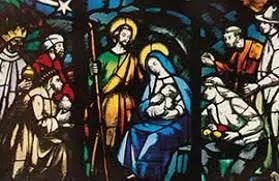I. Introduction to Christian Faith
i. Overview of the statement of faith
ii. What is biblical faith?
iii. The importance of faith in the Christian life
II. The Authority of the Bible
i. The inspiration and inerrancy of Scripture
ii. The role of the Bible in Christian faith and practice
iii. Principles of biblical interpretation
III. The Tri-unity of the Godhead
i. The nature of God as three-in-one
ii. The Father, Son, and Holy Spirit in Scripture
iii. Implications of the Trinity for faith and practice
IV. Creation, Fall, and Redemption
i. The biblical account of creation, fall, and redemption
ii. The sinfulness of humanity and our need for a savior
iii. The work of Christ on the cross and our salvation
V. The Person and Work of Jesus Christ
i. The deity and humanity of Christ
ii. The virgin birth and the life of Christ
iii. The death, burial, and resurrection of Christ
VI. The Gospel of the Grace of God
i. The message of the gospel
ii. The importance of the death, burial, and resurrection
iii. The implications of the gospel for our lives
VII. The Salvation of Sinners
VIII. The Second Coming of Christ
i. Christ's bodily ascension and heavenly enthronement
ii. The second coming and the resurrection of the dead
iii. The implications of the second coming of Christ
X. Pursuing Personal Holiness
i. The importance of personal holiness
ii. The role of discipline and self-control
iii. Sexual immorality and the honor of marriage
i. The nature of salvation
ii. The role of faith in salvation
iii. The assurance of salvation
VII. The Salvation of Sinners
i. The nature of salvation
ii. The role of faith in salvation
iii. The assurance of salvation
IX. Baptism and the Holy Spirit
i. The importance of water baptism by immersion
ii. The baptism of the Holy Spirit and tongues
iii. The gifts of the Spirit and their role in the church
XI. Divine Healing and the Lord's Supper
i. The nature of divine healing
ii. The prayer of faith
iii. The importance of the Lord's Supper for believers
XII. Eternal Life and Eternal Punishment
i. The reality of eternal life for believers
ii. The reality of eternal punishment for unbelievers
iii. The implications of eternal life and eternal punishment for Christian faith and practice




XIII. Satan and the Sovereign Government of the Church
15. The reality and personality of Satan (Job 1:7, 2 Corinthians 11:14).
16. The sovereign government of the local church. The fellowship of believers which constitute a local church (Hebrews 10:25, 1 John 1:7, Ephesians 4:2-3, 1 Thessalonians 2:14, 1 Corinthians 16:17).
Living Waters Fellowship FCA Statement of Faith

i. The reality and personality of Satan
Satan demonstrates all the aspects of personality including intellect, will, and emotions. This is especially important to consider since many view Satan as simply a force representing evil. Like other angels, Satan is a spirit without a physical form. Hebrews 1:4 says this about angels: “Are they not all ministering spirits, sent out to serve those who will inherit salvation?” Likewise, demonic angels are commonly called “unclean” or “evil” spirits (Lk 4:36, 8:2), and no doubt, Satan is the same.
According to the Bible, Satan is a real and personal being, the archenemy of God and all that is good. He is described as a fallen angel who rebelled against God and was cast out of heaven along with his followers. Here are some Bible references that support this view:
1. Satan is a created being. He is not equal to God in power or authority.
"Through him [Jesus] all things were made; without him nothing was made that has been made"
(John 1:3).
"For by him [Jesus] all things were created: things in heaven and on earth, visible and invisible,
whether thrones or powers or rulers or authorities; all things were created by him and for him"
(Colossians 1:16).
2. Satan was originally a powerful angel who rebelled against God and was cast out of heaven.
"How you have fallen from heaven, morning star, son of the dawn! You have been cast down to
the earth, you who once laid low the nations!" (Isaiah 14:12).
"And there was war in heaven. Michael and his angels fought against the dragon [Satan], and the
dragon and his angels fought back. But he was not strong enough, and they lost their place in
heaven. The great dragon was hurled down—that ancient serpent called the devil, or Satan, who
leads the whole world astray. He was hurled to the earth, and his angels with him"
(Revelation 12:7- 9).
3. Satan is a real and personal being who seeks to destroy the works of God and lead people away
from Him.
"The thief [Satan] comes only to steal and kill and destroy; I [Jesus] have come that they may have
life, and have it to the full" (John 10:10).
"Be alert and of sober mind. Your enemy the devil prowls around like a roaring lion looking for
someone to devour" (1 Peter 5:8).
4. Satan has the power to deceive and tempt people to sin.
"And no wonder, for Satan himself masquerades as an angel of light" (2 Corinthians 11:14).
"Then Jesus was led by the Spirit into the wilderness to be tempted by the devil" (Matthew 4:1).
The Bible teaches that Satan is a real and personal being who seeks to destroy the works of God and lead people away from Him. He is a powerful fallen angel who rebelled against God and was cast out of heaven, and he has the power to deceive and tempt people to sin. As believers, we must be aware of his schemes and put on the armor of God to resist his attacks (Ephesians 6:10-18).

ii. Church Government and the Role of the Local Church
Christ is the head of his church, the Shepherd of his flock. He has the sovereign right to act as He pleases and He has chosen to act through his body, the church. Within the church, God has placed Under-Shepherds to exercise biblical leadership and judgement in the feeding, protecting, and disciplining of his sheep. The roles of Pastors and elders are roles instituted by God, and they are accountable to Him as stewards of their ministries.
i. The reality and personality of Satan
According to the Bible, Satan is a real and personal being, the archenemy of God and all that is good. He is described as a fallen angel who rebelled against God and was cast out of heaven along with his followers. Here are some Bible references that support this view:
1. Satan is a created being. He is not equal to God in power or authority.
"Through him [Jesus] all things were made; without him nothing was made that has been made"
(John 1:3).
"For by him [Jesus] all things were created: things in heaven and on earth, visible and invisible, whether thrones or powers or rulers or authorities; all things were created by him and for him"
(Colossians 1:16).
2. Satan was originally a powerful angel who rebelled against God and was cast out of heaven.
"How you have fallen from heaven, morning star, son of the dawn! You have been cast down to the earth, you who once laid low the nations!" (Isaiah 14:12).
"And there was war in heaven. Michael and his angels fought against the dragon [Satan], and the dragon and his angels fought back. But he was not strong enough, and they lost their place in heaven. The great dragon was hurled down—that ancient serpent called the devil, or Satan, who leads the whole world astray. He was hurled to the earth, and his angels with him" (Revelation 12:7- 9).
3. Satan is a real and personal being who seeks to destroy the works of God and lead people away from Him.
"The thief [Satan] comes only to steal and kill and destroy; I [Jesus] have come that they may have life, and have it to the full" (John 10:10).
"Be alert and of sober mind. Your enemy the devil prowls around like a roaring lion looking for someone to devour" (1 Peter 5:8).
4. Satan has the power to deceive and tempt people to sin.
"And no wonder, for Satan himself masquerades as an angel of light" (2 Corinthians 11:14).
"Then Jesus was led by the Spirit into the wilderness to be tempted by the devil" (Matthew 4:1).
The Bible teaches that Satan is a real and personal being who seeks to destroy the works of God and lead people away from Him. He is a powerful fallen angel who rebelled against God and was cast out of heaven, and he has the power to deceive and tempt people to sin. As believers, we must be aware of his schemes and put on the armor of God to resist his attacks (Ephesians 6:10-18).
The sovereign government of the church is a theological concept that refers to the ultimate authority and rule of God over His people, the church. It is based on the belief that Christ is the head of the church, and that He exercises His authority through various offices and ministries within the church.
The Bible teaches that God has given certain leaders and ministries within the church the responsibility to govern and shepherd His people. These include apostles, prophets, evangelists, pastors, and teachers (Ephesians 4:11). These leaders are responsible for teaching and equipping the saints for the work of ministry, so that the church may be built up and matured in the faith (Ephesians 4:12-13).
At the same time, the Bible also teaches that the ultimate authority and rule of the church belongs to Christ. He is the head of the church, and all authority in heaven and on earth has been given to Him (Ephesians 1:22-23; Matthew 28:18). This means that all decisions and actions within the church should be made in accordance with His will and purpose.
The sovereignty of God is also expressed through the use of church discipline, which is a means of restoring and preserving the purity and unity of the church. The Bible teaches that God has given the church the authority to discipline and even excommunicate members who persist in sin and refuse to repent (Matthew 18:15-17; 1 Corinthians 5:1-5).
Ultimately, the sovereign government of the church means that God is in control of His people, and that He will guide and direct them according to His perfect will. This does not mean that the church is perfect or immune from error, but it does mean that God is working all things together for the good of those who love Him and are called according to His purpose (Romans 8:28).
The role of the local church is to carry out the mission of God within a particular community. This includes proclaiming the gospel, making disciples, and serving the needs of the community. The local church is responsible for nurturing and discipling its members, providing opportunities for worship and fellowship, and equipping believers for ministry.
In addition, the local church is responsible for exercising discipline and oversight within its own community, ensuring that its members are living in accordance with biblical standards and addressing any issues that arise. This is done through the guidance of the Holy Spirit and the leadership of the pastors and elders.
Ultimately, the local church is a visible expression of the body of Christ on earth, and it plays a vital role in fulfilling God's purposes in the world. The church is not just a human institution, but a divine one, and it is through the church that God chooses to reveal His love and grace to the world.
The local church is to be a community of believers who come together to worship God, grow in their faith, and serve one another and the world around them. The church is also tasked with carrying out the Great Commission, which is to make disciples of all nations (Matthew 28:19-20).
It is where believers can receive pastoral care and spiritual guidance from their leaders (1 Thessalonians 5:12-13, Hebrews 13:17). It is also a place where believers can use their spiritual gifts to serve others and build up the body of Christ (1 Corinthians 12:4-11).
It is the place where believers can find community and support as they navigate through life's challenges (Galatians 6:2, Ephesians 4:16). It is also a place where believers can find accountability and encouragement in their walk with Christ (Hebrews 10:24-25).
Overall, the local church plays a crucial role in the spiritual growth and well-being of believers, and in carrying out God's mission in the world.
Scriptures:
Proclaiming the Gospel: "And He said to them, 'Go into all the world and preach the gospel to every creature.'" (Mark 16:15)
Making Disciples: "Go therefore and make disciples of all the nations, baptizing them in the name of the Father and of the Son and of the Holy Spirit, teaching them to observe all things that I have commanded you..." (Matthew 28:19-20)
Serving the Needs of the Community: "Pure and undefiled religion before God and the Father is this: to visit orphans and widows in their trouble, and to keep oneself unspotted from the world." (James 1:27)
Nurturing and Discipling its Members: "And they continued steadfastly in the apostles' doctrine and fellowship, in the breaking of bread, and in prayers." (Acts 2:42)
Providing Opportunities for Worship and Fellowship: "Not forsaking the assembling of ourselves together, as is the manner of some, but exhorting one another, and so much the more as you see the Day approaching." (Hebrews 10:25)
Equipping Believers for Ministry: "And He Himself gave some to be apostles, some prophets, some evangelists, and some pastors and teachers, for the equipping of the saints for the work of ministry, for the edifying of the body of Christ." (Ephesians 4:11-12)
Exercising Discipline and Oversight: "Moreover if your brother sins against you, go and tell him his fault between you and him alone. If he hears you, you have gained your brother. But if he will not hear, take with you one or two more, that 'by the mouth of two or three witnesses every word may be established.' And if he refuses to hear them, tell it to the church." (Matthew 18:15-17)
Being a Visible Expression of the Body of Christ on Earth: "Now you are the body of Christ, and members individually." (1 Corinthians 12:27)

iii. The Importance of Christian Fellowship and Unity
The unity of the church is vital for our endurance. We're not meant to live the Christian life in isolation. And it's vital for our witness; Jesus authorized the unbelieving world to judge whether or not the Father sent Him into the world based on the church's visible unity (John 17:21). Chrisitian fellowship produces our mutual cooperation in God's worship, God's work, and God's will being done in the world. Because of the importance of Christian fellowship, it is essential to distinguish biblical guidelines to govern our interactions with other professing believers.
iii. The Importance of Christian Fellowship and Unity
Christian fellowship and unity are essential aspects of the Christian faith and are highly valued in the Bible. Fellowship refers to the communal life of believers, characterized by mutual support, encouragement, and sharing of resources, while unity refers to the oneness of believers in faith and purpose. Both are critical for the health and effectiveness of the church and the witness of Christ to the world.
First, the Bible teaches that Christians are called to live in fellowship with one another. In Acts 2:42-47, the early church was characterized by "fellowship," which included gathering together, breaking bread, and praying. Hebrews 10:24-25 urges believers to "consider how to stir up one another to love and good works, not neglecting to meet together, as is the habit of some, but encouraging one another."
Additionally, the Bible teaches that Christians are called to be unified in faith and purpose. In John 17:20-23, Jesus prays that his followers may be one, just as he and the Father are one. Paul also emphasizes the importance of unity in 1 Corinthians 1:10, urging the Corinthians to be "united in the same mind and the same judgment."
The importance of Christian fellowship and unity can be seen in the benefits they provide to believers and the church as a whole. In fellowship, believers are able to support one another through difficult times, share resources, and grow in their faith together. In unity, the church is strengthened and able to more effectively fulfill its mission of proclaiming the gospel and making disciples.
However, the Bible also warns of the dangers of disunity and division within the church. In 1 Corinthians 12:12-27, Paul compares the church to a body, with each member playing a unique and necessary role. He emphasizes that if one member suffers, all suffer together, and if one member is honored, all rejoice together. In contrast, disunity and division can lead to a breakdown of the body and hinder the work of the church.
Christian fellowship and unity are critical components of the Christian faith, as they help believers grow in their faith, support one another, and strengthen the church to fulfill its mission. Through fellowship and unity, believers can better reflect the love and grace of Christ to the world.